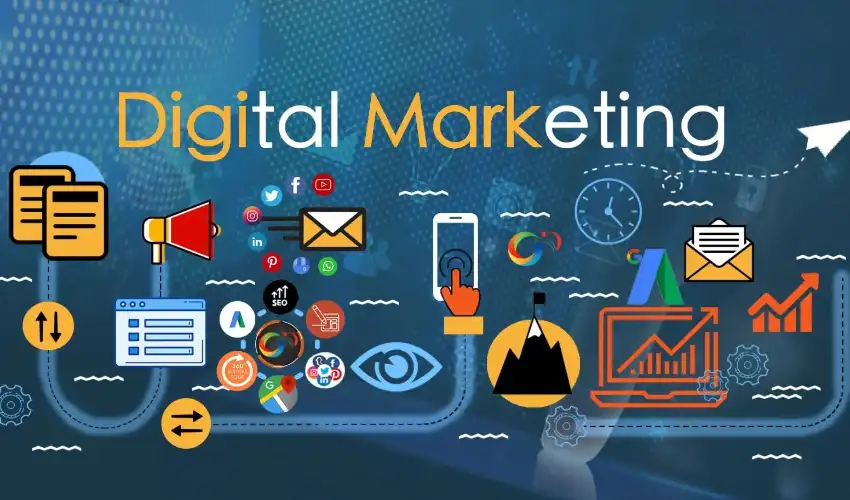Digital agencies are constantly evolving, and 2025 promises to be a transformative year for this dynamic industry. As businesses continue to embrace digital-first strategies, the role of digital agencies is expanding beyond traditional marketing and creative services. Agencies are increasingly becoming strategic partners that drive growth, innovation, and customer engagement for brands across the globe. Understanding the trends and innovations shaping the future of digital agencies is essential for businesses seeking to stay competitive.
One of the most significant changes influencing Digital Agency News is the rapid advancement of artificial intelligence (AI) and machine learning. AI is no longer just a buzzword; it has become a core tool for agencies to optimize campaigns, predict customer behavior, and deliver personalized experiences. In 2025, digital agencies are expected to leverage AI-driven analytics to offer more precise targeting, real-time campaign adjustments, and automated content generation. This shift allows agencies to provide measurable ROI while saving clients time and resources.
Another major trend shaping the future of digital agencies is the growing importance of data privacy and ethical marketing practices. With regulations like GDPR and emerging global privacy laws, agencies must prioritize transparent data collection and usage. Consumers are increasingly aware of how their data is used, and agencies that adopt ethical marketing strategies will gain trust and loyalty. This focus on responsible data management will be a key differentiator for leading agencies in 2025.
The demand for integrated digital services is also reshaping agency operations. Businesses no longer seek isolated services like social media management or website design—they want holistic solutions that align with their overall strategy. Digital agencies are responding by offering end-to-end services, including content marketing, SEO, paid media, UX/UI design, and conversion rate optimization. This integrated approach ensures that every aspect of a brand’s digital presence works cohesively, delivering better results and a stronger brand identity.
Technology innovation continues to redefine agency capabilities. In 2025, agencies are likely to adopt augmented reality (AR) and virtual reality (VR) to create immersive brand experiences. AR and VR campaigns provide interactive ways for customers to engage with products and services, enhancing brand storytelling and engagement. Similarly, voice search optimization and smart device integration are becoming essential as consumer behavior shifts toward hands-free and AI-assisted interactions. Agencies that stay ahead of these technological trends will have a competitive advantage in delivering next-generation marketing solutions.
Content remains at the heart of digital agency offerings, but the way content is created and distributed is evolving. In 2025, video content, short-form media, and live streaming will dominate digital marketing strategies. Agencies must be adept at creating compelling content that resonates with diverse audiences across multiple platforms. Moreover, user-generated content and influencer collaborations will continue to grow, requiring agencies to manage authentic brand relationships and community engagement effectively.
Sustainability and social responsibility are also shaping the future of digital agencies. Consumers increasingly favor brands that demonstrate environmental and social responsibility. Agencies in 2025 are expected to help clients develop campaigns that highlight sustainability initiatives, ethical practices, and positive societal impact. By integrating purpose-driven marketing, agencies can enhance brand reputation and appeal to socially conscious audiences.
Remote work and global talent acquisition are transforming agency structures. The pandemic accelerated the shift to hybrid and remote work models, and this trend continues into 2025. Digital agencies now have access to a global talent pool, allowing them to hire specialized professionals from anywhere in the world. This flexibility enables agencies to offer diverse skill sets and innovative solutions while maintaining cost efficiency and operational agility.
Finally, the competitive landscape for digital agencies is becoming more specialized. Agencies that focus on niche markets, industry-specific expertise, or innovative technologies are likely to stand out. Clients increasingly seek partners who understand their unique challenges and can deliver customized solutions. Agencies that invest in continuous learning, research, and trend analysis will be better positioned to anticipate client needs and deliver strategic value.
In conclusion, the future of digital agencies in 2025 is defined by innovation, integration, and adaptability. Agencies that embrace AI and emerging technologies, prioritize ethical marketing, offer comprehensive solutions, and maintain a focus on sustainability and client success will lead the industry. The evolving landscape presents both opportunities and challenges, but agencies that stay agile and forward-thinking will thrive. As businesses continue to navigate a rapidly changing digital world, partnering with the right agency will be more crucial than ever for achieving growth, engagement, and long-term success.
